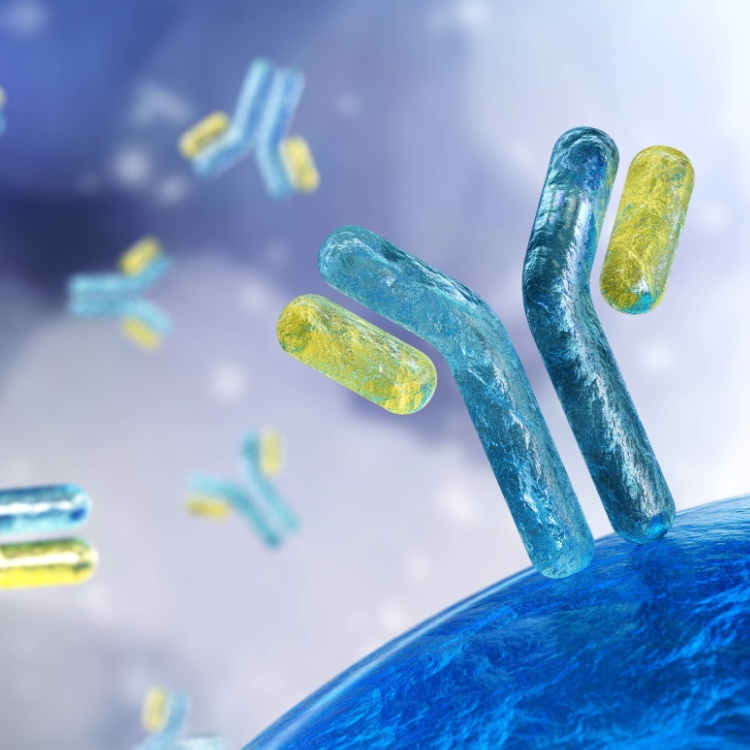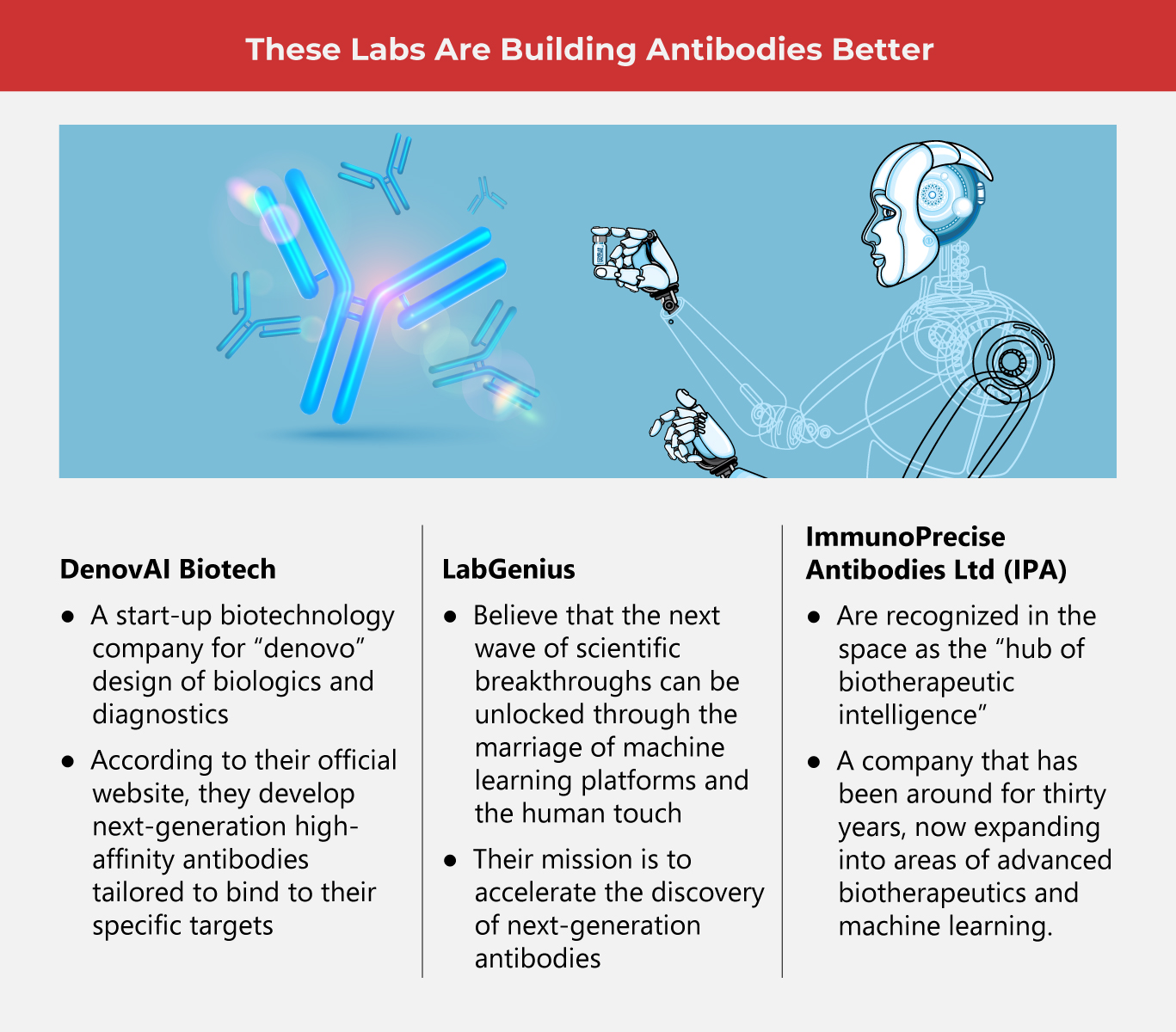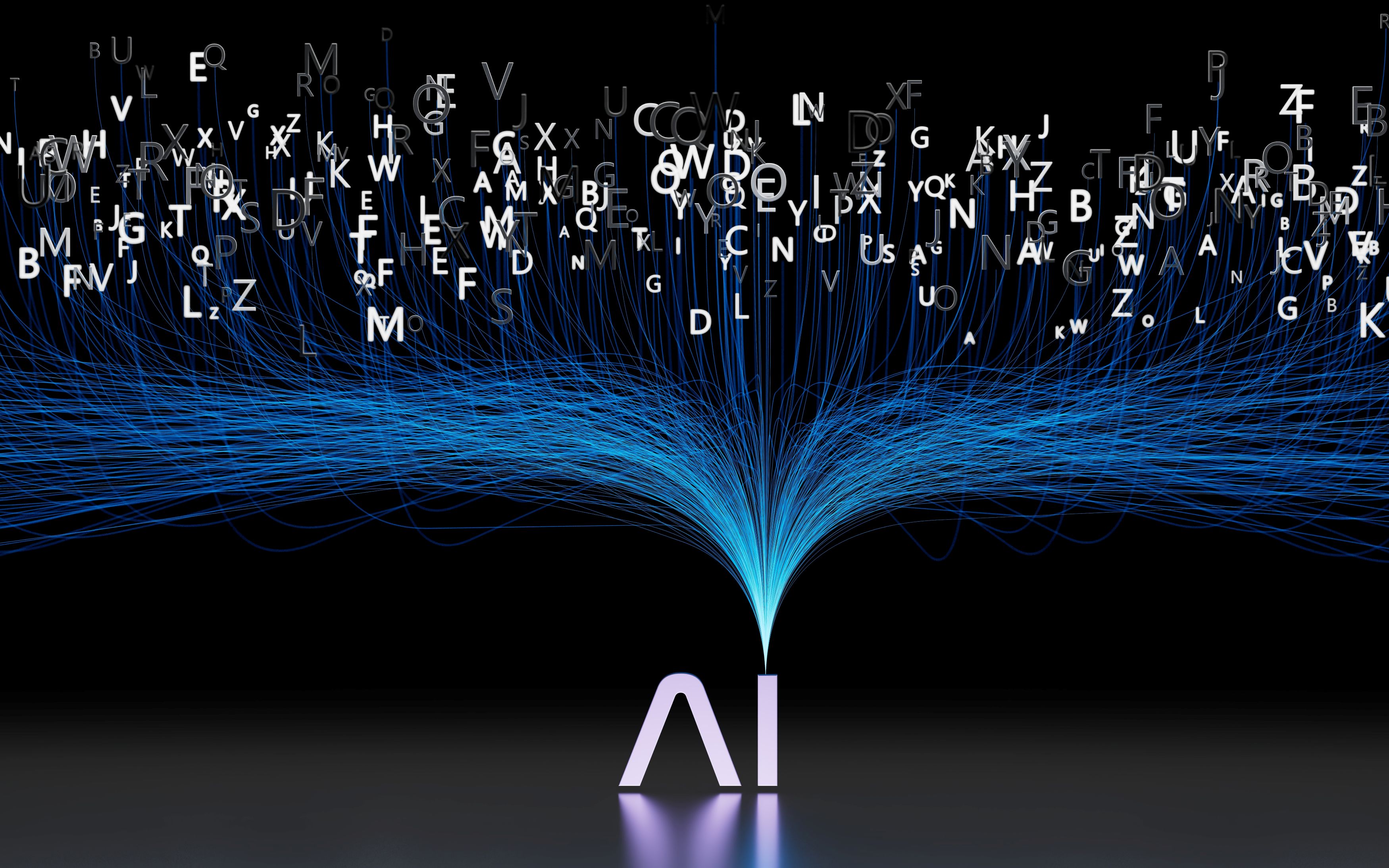These Antibodies Are Built by AI

Generative artificial intelligence is being harnessed to design better antibodies for humans. Here’s how the labs are doing it.
Designing antibiotics that cure diseases and developing vaccines that allow the human body to fight against illnesses is a highly specialized field that takes many years of research and study to make the best synthetic antibodies.
The field is relatively young. It was only in the 1980s that big pharmaceutical companies started designing and manufacturing synthetic antibodies, and the process was incredibly slow. Researchers and antibody designers are tasked to sift through millions of protein molecules and amino acids to find the perfect combination to target a specific problem.
This is where AI comes in to help speed things along. A few labs have already started adopting artificial intelligence technology, and in particular, generative AI and machine learning algorithms to design antibodies for specific diseases.
(Also Read: How AI Helps Alleviate Alzheimer’s)
DenovAI
Founded by Kashif Sadiq, a scientist formerly with the European Molecular Biology Laboratory (EMBL), DenovAI is a start-up aiming to design and develop “broader, faster, and cheaper” antibodies with the use of machine learning and computational biophysics.
DenovAI aims to design antibodies via a “de novo” approach, meaning their designs are brand new, and not based on previously known structures. According to EMBL, DenovAI will “primarily develop an AI-powered biophysics solution that can discover potential antibodies” and the lab will suggest which of these may be used therapeutically.
The lab uses the latest advancements in protein structure prediction, AI algorithms, computational molecular biophysics techniques, and “experimentally determined” antigen-antibody structures.
In an interview with The Microbiologist, Sadiq said that DevovAI’s approach has never been taken before. “We have seen major advances in the field of therapeutic antibodies…but the process is still incredibly slow, vastly expensive, and inefficient. We hope to develop a cutting-edge solution that will disrupt the whole field, cutting discovery timelines from months to days. This could dramatically broaden the scope of antibody therapy for many more diseases.”
LabGenius
Based in South London, LabGenius was founded by James Field. Similar to DenovAI, Field was motivated by seeking broader, faster, and cheaper solutions to creating cures for diseases.
LabGenius uses DNA sequencing, computational biophysics, and robotics to automate its processes. A feature on Wired showed a glimpse of what goes on in their lab: “A machine learning algorithm designs antibodies to target specific diseases, and then automated robotic systems build and grow them in the lab, run tests, and feed the data back into the algorithm, all with limited human supervision.”
The company has partnered up with Sanofi, a major pharmaceutical brand, to collaborate on their NANOBODY variants.
The ultimate goal of LabGenius is to create better antibodies. Field said that LabGenius is finding new molecules that could not have been discovered through traditional methods, which should enable them to “find better molecules with better properties, which ultimately translates to better outcomes for patients.”
ImmunoPrecise Antibodies (IPA), Ltd.
A pioneer in the antibodies industry, ImmunoPrecise Antibodies (IPA) has been leading the charge when it comes to synthetic antibody design and biophysics therapy.
IPA makes use of AI, systems biology, and multi-omics modeling in its processes and operations. The company has come up with a patented technology they call Lens AI, an integrated intelligence platform that according to Yahoo! Finance, can “connect the fundamental pillars of the biosphere into one comprehensive framework.” These pillars consist of the sequence, structure, and function of a molecule.
Lens AI can handle massive amounts of DNA and RNA sequences and information generated by various methods while incorporating information gathered from clinical trials, peer-reviewed literature, and other patents. This makes it a comprehensive and sophisticated platform for discovering new antibodies and therapeutic solutions for various needs.
Lab-designed Antibodies for All
Advancements in the design of antibodies become more relevant in the real world, especially after emerging from a global pandemic. Rising cases of illnesses such as cancer make the need to come up with solutions more urgent and pressing. Time is of the essence when it comes to saving lives, and though the technology may differ from one lab to the next, the goal of bringing safe, effective, and accessible treatments for patients is the common thread.  As one of the Top 20 EMS companies in the world, IMI has over 40 years of experience in providing electronics manufacturing and technology solutions.
As one of the Top 20 EMS companies in the world, IMI has over 40 years of experience in providing electronics manufacturing and technology solutions.
We are ready to support your business on a global scale.
Our proven technical expertise, worldwide reach, and vast experience in high-growth and emerging markets make us the ideal global manufacturing solutions partner.
Let's work together to build our future today.
Other Blog



